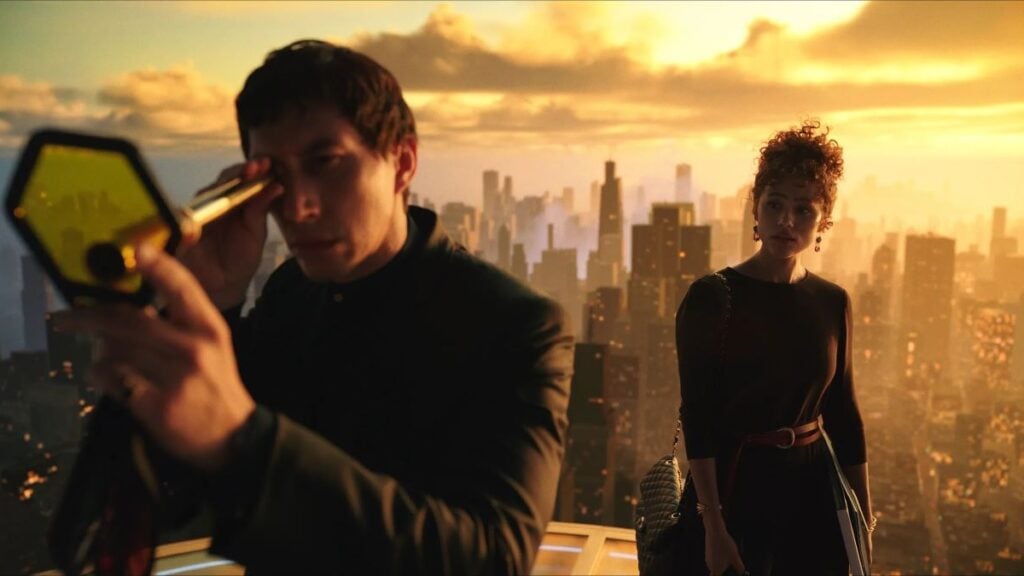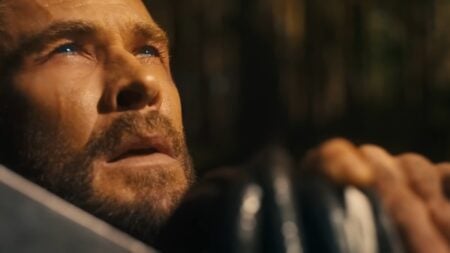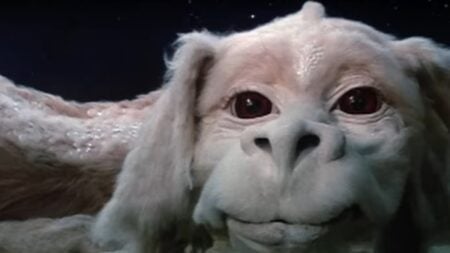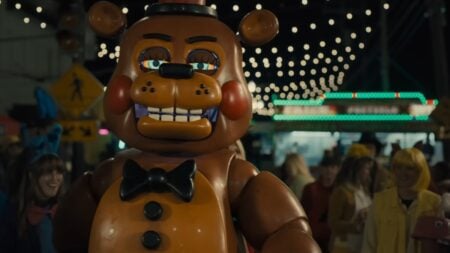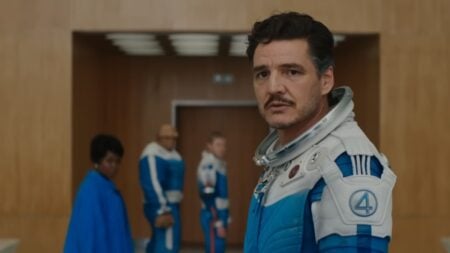Skip To...
Megalopolis is the latest of several massive self-indulgent epic passion projects from beloved directors. This trend will likely continue into the distant future as time comes for so many of our favorite filmmakers. Yet again, we see a story about a visionary artist who can save the world if the huddled masses and old-fashioned gatekeepers just listen to him. Still, I’m so glad I saw it, and I’d recommend it to anyone with even the slightest interest in film.
Francis Ford Coppola needs no introduction. He’s the visionary director who first envisioned this project in 1977. After several setbacks, the finished product contains hallmarks of every decade between now and then. My screening featured a live broadcast of the New York Film Festival interview with Coppola. It was rather refreshing to hear him de-center himself, celebrating actors over his own auteur status. Watching the film shortly thereafter reveals that whatever outsider rehearsal techniques he was going on about did not work.
A Very Vague Vision
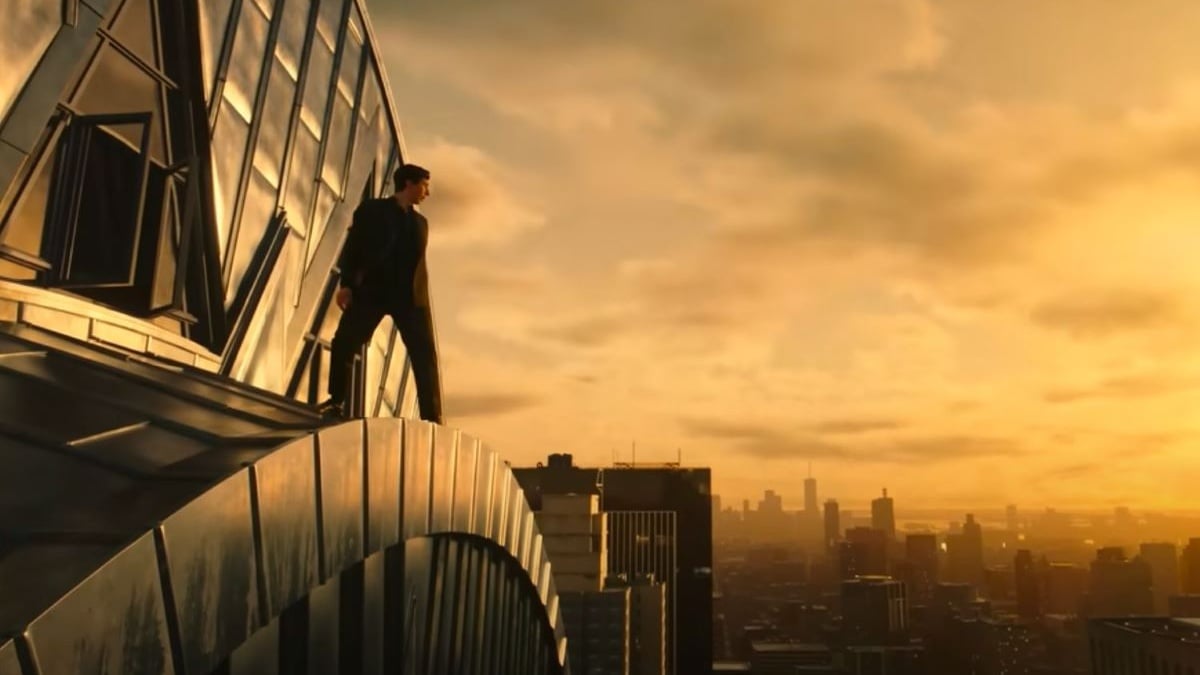
The plot of Megalopolis is simultaneously straightforward and almost comically tangled. Adam Driver stars as Cesar Catilina, a master architect in charge of redesigning the failing empire of New Rome. Cesar is the film’s mouthpiece, an artist who will save the world with his creative spirit and inexplicable ability to stop time. To that end, Cesar invented a mysterious element or building material called Megalon. I don’t know why he named his miracle crystal after my favorite Godzilla monster, but my guess is that Coppola started from the term “Megalopolis” and worked backwards. Cesar quarrels with New Rome’s traditionalist mayor, Giancarlo Esposito’s Franklyn Cicero. The plot thickens as Cicero’s daughter, Julia, becomes Cesar’s protege and lover. Cesar’s old-money family, former mistress, and jealous cousin add plenty of intrigue when they can be bothered to show up.
The cast is stacked here, but almost everyone is at the very bottom of their game. The performances in this movie vary wildly between soul-wrenching sincerity and genuinely astonishing failure. Adam Driver manages to carry his brooding alien routine through all nine versions of the character Coppola came up with with limited embarrassment. The same cannot be said for Shia LaBeouf or Jon Voight, who frequently summoned laughs, unintentional or otherwise. Aubrey Plaza appears as a noir femme fatale archetype actually named Wow Platinum, and her unhinged moments are a delight. With this many big names in the cast, a lot of them get buried. Dustin Hoffman, Jason Schwartzman, James Remar, and half a dozen other heavy hitters disappear into the set dressing. They even got a real descendant of a wealthy dynasty in the form of Balthazar Getty. You will see generational talents deliver abysmal performances here.
47 Years of Cinema

I was thinking a lot about Citizen Kane as I watched Megalopolis. Not because the two projects are of any commensurate quality, but because Megalopolis gives you a lot of time to think. If you’ve never seen Orson Welles’ debut feature, its reputation as the greatest film ever made gives you the wrong impression. Those who denigrate “art films” probably picture a depressing nine-hour slog about the meaninglessness of life. Once you see it, you realize it’s one of the most propulsive, engaging, and purely fun films ever made. In its first act, Megalopolis almost captures a fraction of that level of entertainment among all its confused moralizing. The film’s central narrative is the problem. Kane contains a masterful mystery and a perfect character study underneath all its joyous revelry. Megalopolis is like simultaneously watching a dream and listening to someone tell you about a dream they had.
We know what Coppola’s doing with Megalopolis. He blends the Roman aesthetic with American iconography to connect two falling empires. He’s not the first filmmaker to make the connection, but he finds a lot of fun visual spins on the idea. If you’re specifically interested in a modernized Rome, Ralph Fiennes’ masterful Coriolanus is a far better example. At one point, characters reveal an elegant statue with a massive ad for a fast food restaurant behind it. There’s plenty of fun debauched bacchanal stuff, but Coppola wants you to see it as a bad thing. When the movie’s wandering through chaotic party scenes and playing its messages through striking imagery, it’s a ton of fun. When it’s following Cesar’s love affair or the limp fight between noble families, it’s empty, slow, and dull.
Asking the Right Questions
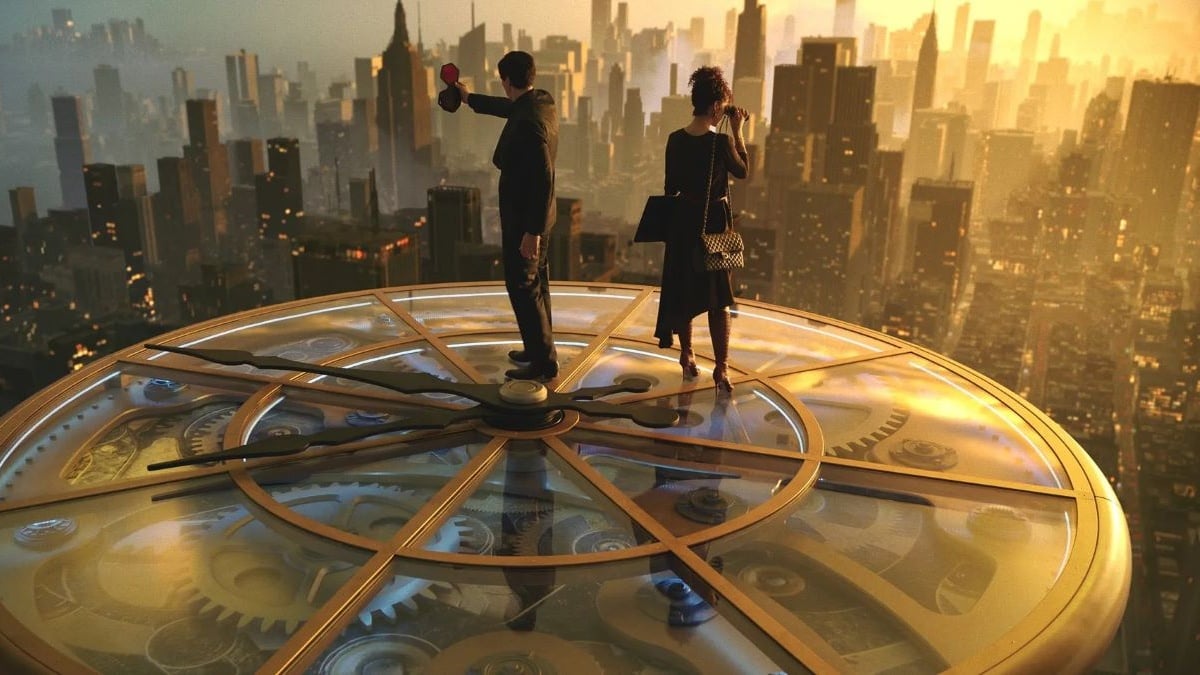
Megalopolis looks incredible, but all of that pomp and circumstance amounts to nothing. Coppola’s grand statement at the core of the film is that everyone on Earth needs to have a conversation about the future. He wants some grand debate about the direction we’re heading in. Cesar gives us a few glimpses at his utopia, but there’s no central vision here. What does Cesar want aside from the power to unilaterally rebuild a place where millions of people live? Coppola can’t have “a debate about the future” and a lone artistic visionary that can save the world. Cesar has already decided on all the answers for us. There’s no grand message, even as Driver blurts out half-thoughts about love, time, and public transportation. Mihai Mălaimare Jr.’s cinematography is incredible enough to make Cesar’s rants feel important, but they lack substance. It’s a disappointing core under a fascinating mess.
Megalopolis can’t deliver answers, but some of its implications are grim. The film’s sexual politics would feel out of date if it came out in the 80s, like Coppola intended. I don’t think there’s a single well-written woman in this movie. Cesar has a dead love interest to motivate him and a living one to keep him moving. Wow Platinum is an evil temptress straight out of the 1940s. Shia LaBeouf, currently awaiting trial for sexual battery, assault, and infliction of emotional distress, plays a blisteringly obvious Trump analog. Before he settles into the “Make Rome Great Again” routine, he dresses up like a lady so that you know he’s the bad guy. That’s before villains try to cancel the hero by falsely accusing him of sex with a minor. Those on-set accusations against Coppola sound a little worse after you’ve seen the film.
I’m glad I saw Megalopolis, but I know that feeling will not be universal. It’s a massive, complicated, bizarre, and frustrating film. There’s something beautiful about a project this controversial in a theater. Two years ago, celebrated filmmaker Alejandro G. Iñárritu released his self-indulgent passion project, Bardo, False Chronicle of a Handful of Truths. It went straight to Netflix, and no one saw it. It’s honestly a lot better than Megalopolis, on balance. As flawed as Megalopolis is, bizarre films like this one deserve attention. It’ll certainly start a debate.
Megalopolis
Megalopolis is too big for one review, but it's also too messy, bloated, and poorly-executed to praise.
Pros
- Incredible visuals
- Several hilarious moments
- Brilliant cinematography
Cons
- Awful performances
- Questionable treatment of women on and off the screen
- Confused and messy messaging

